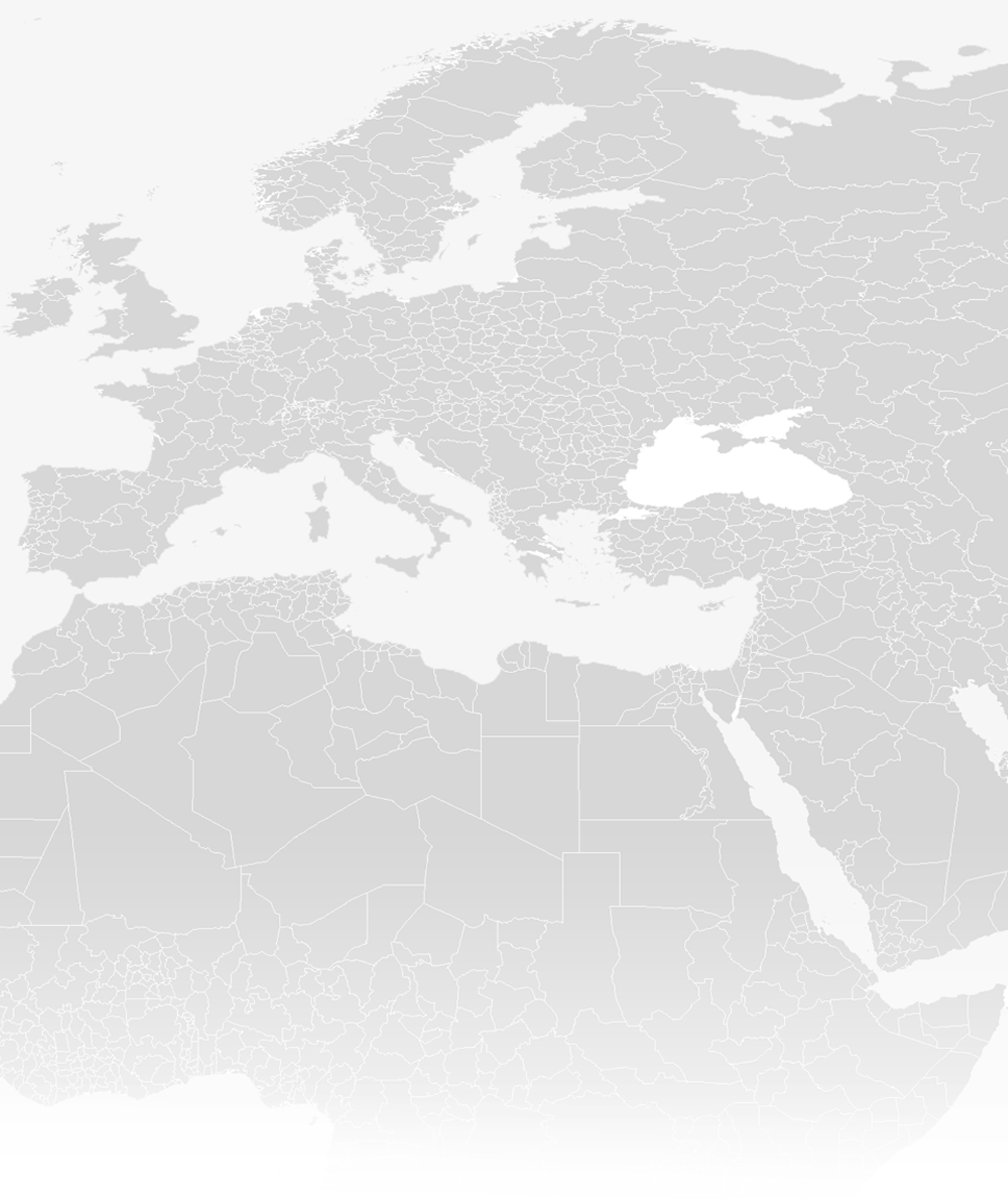

This project has received funding from the European Union Framework Program for Research and Innovation (SC5-18a-2014) under grant agreement nº 641538

Association pour la recherche et le développement des méthodes et processus industriels (ARMINES) and Ecole Nationale Superieure des Mines de Paris (MINES ParisTech) (France)
ARMINES (www.armines.net) is a private non-profit research and technological
organisation (RTO) funded in 1967 at the instigation of its partner engineering
schools, the Ecoles des Mines network. ARMINES currently shares 48 Joint
Research Units (Common Research Centres) with its partner schools, where each
legal entity, either private or public, provides personnel, investment and operating resources for common
research purpose. Under the supervision of the French Ministry for Productive Recovery, ARMINES is
bound by French government-approved agreements to its partner schools of the Ecoles des Mines
network: Paris (Mines ParisTech), Albi-Carmaux (Mines Albi-Carmaux), Alès (Mines Alès), Douai
(Mines Douai), Nantes (Mines Nantes) and Saint-Etienne (ENSM-SE). ARMINES also collaborates with
ENSTA ParisTech.
In this specific context, ARMINES operates within the framework of the law of 18 April 2006 which
allows public sector higher education or research establishments to entrust private-sector organisations
with their contractual research activities.
With a total turnover of more than €47 million (2012), ARMINES has held on to the top spot amongst
private contract research institutions affiliated to higher education establishments. ARMINES is also
member of EARTO (European Association of RTOs), EIRMA (European Industrial Research Association
Management) and the Carnot Institute Association.
In terms of European activity, ARMINES and its partner schools are involved in European projects since
1994 (FP4) and obtained, within FP7, 11 projects as coordinator and 87 as partner.
ARMINES is a member of the Consortium of the GMES core service preparation project MACC-II (Monitoring Atmospheric Composition and Climate - Interim Implementation). It contributes its radiation database HelioClim-3 to MACC as well as its knowledge in information systems for users in renewable energy. ARMINES has developed the new Heliosat-4 method and the new HelioClim-4 database within MACC-II. ARMINES is managing and developing several systems, such as DataForWind, SoDa Service and the information system jointly established by the International Energy Agency SHC#36 and the EUfunded project MESoR that is used in MACC. These information systems are GEOSS-compliant.
In several scenarios in GEOSS Architecture Implementation Pilots, and in the EU-funded project EnerGEO, ARMINES demonstrated its ability to exploit the interoperability capabilities of the various services listed in the GEOSS catalogues as well as its owns to create information suitable to companies and researchers in solar energy. ARMINES has managed the EU-funded ENDORSE project (2011-2013) that has set up several services exploiting Copernicus products and currently put on the market by SMEs.
ARMINES’ Third Party: Ecole Nationale Supérieure des Mines de Paris (Mines ParisTech)
Ecole Nationale Supérieure des Mines de Paris (MINES ParisTech - www.mines-paristech.eu), founded in 1783, is one of the oldest French higher education institutions in engineering. The aim is for academic excellence with 286 research professors, 100 theses and 400 articles or books in key research fields published every year. The School is a leader in many areas, among which five major fields: 1/ Earth sciences and the environment, 2/ Energy and process engineering, 3/ Mechanical engineering and materials, 4/ Mathematics and systems and, 5/ Economics, management and society. With 15 research centres extending over five different fields, MINES ParisTech is the leading school in France for its volume of contractual research. Its major research themes are essentially based on problems raised by industry, including MITAL, EDF, TOTAL, RENAULT, PSA, SNECMA, GDF and SAINT-GOBAIN, as well as society as a whole. MINES ParisTech is also member of Paris Sciences et Lettres Research University (PSL - www.univ-psl.fr).
The Centre Observation, Impacts, Energie (OIE) is a joint laboratory of MINES ParisTech and ARMINES, with 16 persons studying the resources of renewable energies and the environmental impacts induced by the production and exploitation of energy. OIE is working on the assessment of the solar radiation available at ground for engineering purposes by the means of satellite imagery since 1978 and in wind energy since 1998. It has created several databases containing solar radiation values and other geographical information parameters of interest in sun and wind energy (atmosphere optics, orography, ground albedo, land cover, air temperature and relative humidity). These databases are continuously updated with the continuous support of the European Space Agency (ESA) and EUMETSAT among others. An expertise has been gained in establishing World-Wide Web servers since 1993. These servers supply applications and databases relating to solar radiation, wind energy and industrial systems.
Prof. Thierry Ranchin, from OIE, has co-created the GEOSS Community of Practice in the SBA Energy in 2006 and is co-chairing it since then. He is a co-chair of the GEOSS SBIB (Societal Benefit Implementation Board) and IDIB (Institutions and Development Implementation Board). He is periodically contributing to the Work Plan of GEOSS..
Key project participants________________________________________________________
Dr Philippe Blanc graduated from the engineering school SupTelecom and received his PhD
degree from the MINES ParisTech in 1999 in the field of engineering sciences and applied mathematics.
He has been working as a research engineer at Aérospatiale, then Thalès Alenia Space in signal and
image processing and data fusion for Earth Observation systems and various projects where scientific
support in signal and image processing, statistics, algorithmic prototyping and applied mathematics is
required. Key role in the project: Staff working for the beneficiary ARMINES who will work on WP2
and WP5.
Mr Lionel Ménard holds a Master degree (Ms. Eng.) in Information Systems Management from the University of Nice Sophia Antipolis. He has an in-depth knowledge of System Development Life- Cycle (SDLC), management of Information System and Spatial Data Infrastructure. He has been the team leader of the Energy contribution from phase 2 to 6 of the GEOSS Architecture Implementation Pilots (2006 – 2013). Since 1996, he has been involved in numerous European Commission funded projects playing key role in advocating, designing, prototyping, developing and monitoring cutting-edge information systems (EnerGEO 2009/2013 – ENDORSE 2011-2013 – MESoR 2007/2009 – SoDa 2000/2003). Key role in the project: Staff working for the MINES ParisTech (the 3rd party) who will be the responsible scientist for ARMINES / MINES ParisTech, who will coordinate WP5 and participate in WP7.
Prof Thierry Ranchin is the director of the Centre Observation, Impacts, Energy since 2013. He received his PhD degree in applied mathematics in 1993 and his "Habilitation à diriger les recherches" in 2005.. After a post-doctoral fellow in an aquaculture company in Tromso, Norway, he joined the Ecole des Mines de Paris in 1994. He was an invited scientist at the University of Jena, Germany in 1998. His current research interests are through the development of innovating methods: (1) sensor fusion of multisources data, (2) mapping of geophysical parameters for renewable energies, (3) offshore wind energy mapping, (4) renewable energies studies, (5) Geographical Information System and (6) mapping and study of urban areas. He has a patent about sensor fusion and more than 100 publications, communications in international symposia, or articles in journals with peer review committees. He is involved in GEOSS since 2005 as Tasks Leader in the societal benefit area ENERGY. He is the co-chair of the Energy Community of Practices since 2006. He was co-chair of the User Interface Committee of GEOSS between 2007 and 2012. Since 2012, he is Member of the Societal Benefits Implementation Board and of the Institutions and Development Implementation. Key role in the project: He will be the responsible scientist in MINES ParisTech (the 3rt party) and will constitute the ENEON energy point of contact.
Prof Lucien Wald is a Professor at the MINES ParisTech since 1991. He is specialised in geophysics (meteorology, solar radiation), remote sensing and image processing. He received several Awards for his research in information technologies and especially in data fusion in environment. He was the scientific coordinator of several EU-funded projects and the scientific responsible for ARMINES in the MACC / MACC-II projects. Key role in the project: Staff working for the beneficiary ARMINES who will work in WP2 and WP7.
Overview
Objectives
Participants
CREAF
Tiwah
CNR
IIASA
CMCC
52º North GmbH
S[&]t Corporation
ICM
BIRA
ARMINES
NILU
EXETER
Institut Mines-Télécom
IEEE
EARSC









